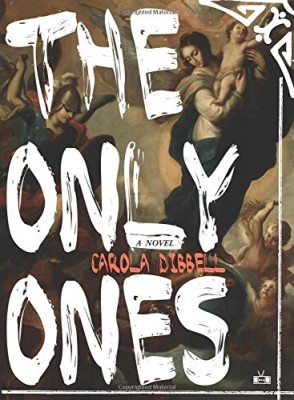
Dean Of Rock Criticism Robert Christgau Looks Back While Novelist Carola Dibbell Imagines The Future
By Michael Goldberg.
While it was likely coincidental that New York-based editor/rock critic Robert Christgau, who has been working on his memoir since 2007, and Carola Dibbell, a journalist who has been writing mostly unpublished fiction for decades and who is married to Christgau, had their books – his memoir, Going Into The City (Dey St./William Morrow); her debut novel, The Only Ones (Two Dollar Radio) – published almost simultaneously early last year, it was an interesting concurrence and I had to read both to see what this couple who have been part of New York’s counterculture since the ’60s had to say.
I have been reading Robert Christgau’s music writing since I was in high school. First I came across his Consumer Guide – capsule reviews of a dozen or so albums, each of which would get a letter grade, you know, like a school paper – in Creem. I devoured his collection of music articles, “Any Old Way You Choose It,” when it was published in 1973. A few years later, in the mid-‘70s, I subscribed to the Village Voice specifically to read the music section – Riffs – which Christgau edited.
Rock criticism began in the mid-‘60s, and while Ralph J. Gleason, the jazz critic for the San Francisco Chronicle who began writing criticism about Bob Dylan and The Beatles and others, was there first, Christgau was one of the early rock critics, and once he became music editor at the Voice in 1974, he had a profound influence, not only on the dozens of music writers he discovered, but also on writers like myself who learned how to write about music mostly from what we read in Creem, the Voice and Rolling Stone.
At one point when I was editing a San Francisco magazine called Boulevards, I wrote a monthly roundup of albums I called “Goldberg’s Consumer Guide” in tribute to Christgau’s column.

Although Greil Marcus has likely influenced my approach to writing music criticism more profoundly than anyone else, I learned plenty from Christgau and his crew of Village Voice writers, as well as the gang at Creem. One of the many things I learned from the many writers in the pages of those publications, were ways of digging beneath the surface and finding the depth of emotion and ideas that were in so much of the music I loved. I felt it, and I heard it, but when I was younger I couldn’t articulate what I was hearing. Those rock critics brought an intellectual approach to music criticism. Albums as weighty as Exile On Main Street and Blonde On Blonde were windows into the mysteries of life, as much so as the novels, films and paintings that meant (and mean) so much to me…
Read the rest of this column at Addicted To Noise!
– A Days of the Crazy-Wild blog post –
